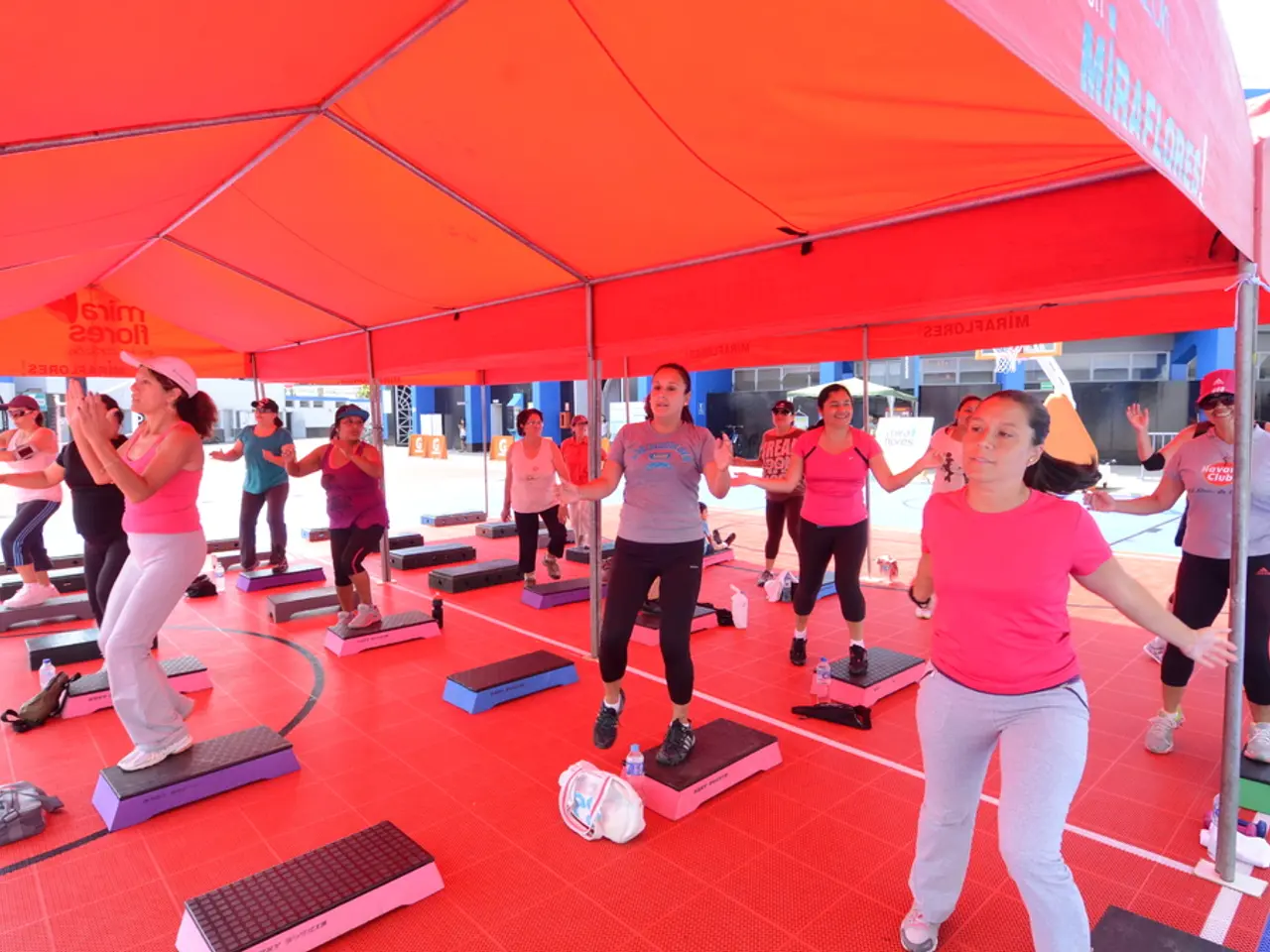Altering Your Professional Surroundings for Enhanced Mental Sharpness?
Transforming Workspaces for Enhanced Mental Agility and Cognitive Flexibility
In the ever-changing world of work, the environment in which we spend our days can have a profound impact on our cognitive abilities. A growing body of research suggests that by challenging individuals to adapt, reframe problems, and shift mental models in response to new conditions, work environments can significantly boost mental agility and cognitive flexibility [1].
Cognitive Flexibility: The Ability to Adapt and Think Differently
Cognitive flexibility, the ability to adjust behaviours and thinking in response to changing environmental demands, is crucial for better adaptation in dynamic settings [4]. Exposure to new work conditions, such as hybrid models, shifting roles, or unexpected responsibilities, exercises cognitive flexibility by requiring employees to reframe problems and adapt strategies dynamically [2].
Boosting Cognitive Flexibility
Environmental changes that support cognitive flexibility typically include elements that promote openness to new ideas, trust, empowerment, and opportunities to approach challenges from multiple perspectives.
- Trust and empowerment rather than control-oriented management enable individuals to experiment, learn, and adapt more freely [2].
- Promoting resilience and agility through supporting intrapreneurs or adaptable employees first, creating role models for others [2].
- Encouraging a growth mindset where challenges are seen as opportunities for innovative solutions, thus enhancing critical thinking and adaptability [3].
- Increasing communication and transparency to keep teams aligned and facilitate collaborative problem-solving [3].
- Designing work environments that reflect constant preparation for change, not fixed future-proofing, fostering ongoing learning and cognitive adaptability [2].
Physical Changes for Mental Benefits
Beyond the psychological aspects, physical changes can also contribute to improved cognitive flexibility. Adjusting airflow, cracking a window, or using a fan can refresh the physiological and mental state. Moderate background noise, like a cafe ambiance, can improve abstract thinking, while total silence may aid analytical tasks [1].
Occasionally using co-working spaces or libraries can inject novelty and external energy, and architectural variation and spatial complexity can stimulate exploratory behavior and divergent thinking [1]. Walking, especially in nature or novel settings, can improve creative ideation scores significantly [5].
Embracing Change for a Flexible Mind
In summary, to support cognitive flexibility, work environments should encourage flexibility in roles and thinking, empower employees with autonomy, cultivate open communication, and promote positive attitudes toward change and uncertainty. Such environments enable enhanced mental agility and better coping with evolving work demands.
For writers, creatives, and remote workers, utilising varied spaces can support different phases of the creative process, while designating different zones for specific types of work can foster a more flexible mind. Introducing small changes weekly can maintain freshness without overstimulation [1].
By embracing change and adapting workspaces to support cognitive flexibility, businesses can foster a more innovative, adaptable, and resilient workforce, better equipped to meet the challenges of an ever-changing world.
References:
[1] University of Illinois (2016) [2] Harvard University (2014) [3] Stanford (2020) [4] Psychology Today [5] Stanford (2014)
- The environment in workspaces can significantly impact our cognitive abilities, especially in promoting mental agility and cognitive flexibility.
- Cognitive flexibility, the ability to adjust behaviors and thinking in response to changing demands, is essential for better adaptation in dynamic settings.
- Trust and empowerment rather than control-oriented management enable individuals to experiment, learn, and adapt more freely, thereby boosting cognitive flexibility.
- Promoting a growth mindset where challenges are viewed as opportunities for innovative solutions, and facilitating collaborative problem-solving can enhance cognitive flexibility.
- Designing work environments that reflect constant preparation for change, and supporting intrapreneurs or adaptable employees, create role models for cognitive flexibility.
- Moderate background noise, activities like walking in nature or novel settings, and adjusting airflow can contribute to improved cognitive flexibility and creative ideation scores.
- Utilizing varied spaces and designating different zones for specific types of work can support different phases of creativity, fostering a more flexible mind.
- By adapting workspaces to support cognitive flexibility, businesses can foster a more innovative, adaptable, and resilient workforce, better equipped to meet the challenges of an ever-changing world, contributing significantly to overall health-and-wellness, workplace-wellness, and fitness-and-exercise.




